
9 minute read
Retirement living
Retirement living and your choices
If you are looking for a supportive environment with safety and security, you might like to consider a well managed retirement village.
The size and levels of accommodation vary – from self contained independent living to serviced apartments. Think about the type of village you wish to live in and what you can afford on a continuing basis. It is essential that you ask questions to understand the financial implications of ‘owning’ a unit in a village. Seek expert advice as well as that of your chosen village’s residents’ committee. Also, be sure to assess the culture and social side of the village to ensure they meet your expectations. What is a retirement village? Retirement villages are designed for people aged over 55 as an alternative housing and lifestyle option. They are popular with people who feel they need more security, support or company, but who want to maintain their independence. Independent living Independent Living Units (ILU), also known as villas or apartments are designed for active retirees. They range from one to four bedrooms and may be within a high or medium-rise complex, terrace housing arrangement, stand-alone or semi-detached. Serviced apartments Serviced apartments are generally one or two bedrooms and provide residents with some daily living assistance. Services may include cleaning, laundry and assistance with personal care. While a small kitchenette is usually included within the apartment, meals are provided in a dining room setting. Residential aged care Some retirement village complexes also offer residential low level care and high level care accommodation, as well as Home Care Packages for people with varying care needs. You will need an aged care assessment to access either of these care options. Go to page 22 to read more about the Home Care Packages or page 49 for information about aged care homes. Types of villages There are two types of retirement villages: Resident funded village Donor funded village Resident funded villages are owned and operated by the private sector or not-for-profit organisations on a commercial basis to produce a profit or surplus.



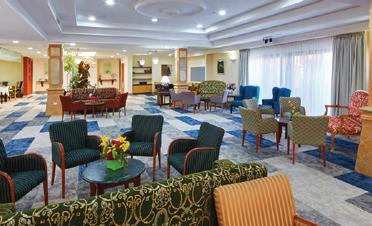
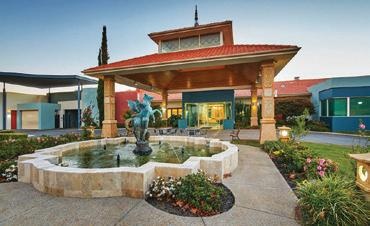
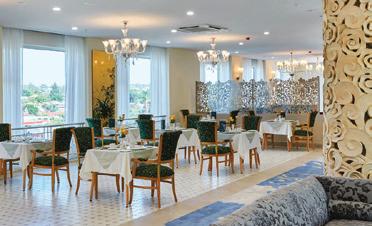
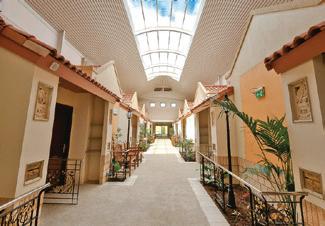

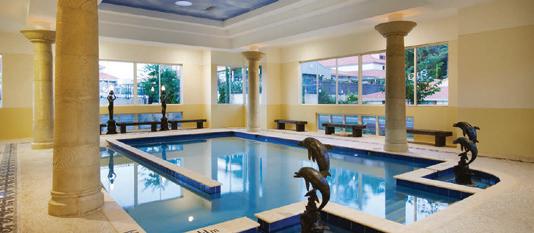
The village is funded by the residents who ‘purchase’ their villa or apartment under one of the tenure arrangements. The residents also contribute to the village’s capital infrastructure and the cost of ongoing management. Donor funded villages are normally owned and operated by not-for-profit organisations or church groups. They include an element of charitable subsidy and entry is generally restricted to the needy. Ownership The various forms of occupation or ownership rights are referred to as ‘tenure’. The legal forms of tenure include Strata Title ownership, leasehold estates, licences to occupy, freehold or company share arrangement with related residency entitlements. Regardless of the type of tenure, residents are consulted about the ongoing management of the village. This ensures that the village you have chosen cannot be changed without the approval of the residents. Deposit or entry contribution? Before moving into a village, you will need to pay an entry contribution which is refunded if you move out of the village. However, a Deferred Management Fee (DMF) usually applies, and is deducted from the amount you receive back. This must be specified in the entry agreement or contract. The cost of entering a village depends on the facilities and services offered. Monthly service and maintenance charges also apply and you may have to pay for extra personal services like laundry. To reserve a villa, a nominal deposit is required and the village will have a policy on how long it can be held for you. Should you change your mind within this specified time, the deposit will be refunded. If you enter into a binding arrangement with the village, the deposit will be part of the purchase price. In some States and Territories, purchasers are entitled to a refund during a ‘cooling off’ period following the signing of a residency contract. Be sure to make enquiries regarding this as some villages may require an administration fee for refunds. Fees and charges There are many fees and charges associated with living in a retirement village. Ensure you are provided with full details of all applicable charges and what they cover. For example, there may be a regular maintenance charge that covers the running costs of the entire village. These costs may include upkeep of facilities, staff, council and water rates for common areas, security, insurances including workers’ compensation and public liability, contents insurance for common areas as well as village building insurance. In addition, the charge may also contribute toward a ‘sinking fund’ for major repairs and improvements.
Retirement living
Retirement living
What happens upon vacating? While the resale value will be determined by the market, there are factors in a retirement village that can add value to your villa or apartment. These include good management, attractiveness and the services and amenities available to enhance retirement living.
Departure/exit fee The village will deduct a ‘deferred’, ‘departure’ or ‘exit’ fee at the time of settlement of sale or re-occupancy of your villa. This fee forms part of the purchase price, but its payment is deferred until the end of the occupancy. The amount is calculated using a formula that generally involves a percentage of your/your successor’s entry cost multiplied by the number of years of your occupancy, and may include a proportion of capital appreciation.
Can’t afford to buy? Some retirement villages offer accommodation rental units, sometimes known as periodic tenancy, although these are generally reserved for people with limited financial resources and are usually income assessed. You don’t own the property but pay a weekly fee for the accommodation under the Residential Tenancy Agreement, plus bond. Depending on your circumstances you may be able to receive rent assistance from Centrelink. Finding the right village
When deciding on a retirement village, be clear about what you want, what you are prepared to compromise on and what you definitely don’t want.
To help you with the decision making process, here are some points to consider: Finances: Know your budget, what you can afford and what other ongoing costs are required. Always seek expert legal and financial advice. Ask questions and ensure you fully understand all the financial and legal implications of living in a retirement village before you sign anything or hand any money over. Lifestyle: Think carefully about how you spend your time now and how you want to spend your time in the future. For instance, if you are looking for a complete lifestyle change, you might consider a resort retirement village. Many villages now offer special interest facilities such as golf and tennis courts, and more are now accepting pets. You may also want to think about whether you want a garden or access to one. Support: One of the attractions of a retirement village is the peace of mind of 24-hour help and assistance. Many villages now offer additional home support services. This is ideal if you need additional help with personal care, meals, laundry and domestic assistance. Location: When looking at locations, you may want to consider whether you want to be closer to family or stay in or near the community you’re already in. You may have always dreamed of living by the sea or in the country, while proximity to shops may also be important to you.
Amenities: Villages now offer a massive range of amenities including libraries, restaurants, community rooms and barbeque areas. Ultimately you will be paying for these amenities through your weekly or monthly payments, so you may want to think about whether an all-weather indoor heated swimming pool or the caravan and boat parking is important to your needs. Other accommodation: Your or your partner’s needs may change in the future, so you may also want to consider what other types of accommodation are available. Many developments are now offering serviced apartments and residential aged care at the same location, which means that even though your needs have might change, you can still live in the same community. Choosing a village When you have found a village that appeals to you and you feel would suit your particular needs, it is recommended that you don’t rush into making a commitment. Instead visit the village often, get to know the management and staff as well as the residents’ committee and seek answers to all your questions. Also, request a copy of the village rules. These are generally appropriate rules to enable residents and guests to enjoy the village, particularly communal areas, and its lifestyle and are based upon courtesy and a mutual understanding between residents and management. Life in a village Living in a retirement village can offer a supportive environment and encourage independence, as well as the ability to enjoy social and leisure activities, if you choose. Many retirement village residents say they have become more active, confident and social since moving to a retirement village, and some go as far as to say they wish they’d done it sooner. While each village has its own culture, they are based on ‘senior friendly’ criteria and a community focused environment. You’ll be surrounded generally by like-minded friendly and welcoming neighbours. Independence A major appeal of retirement living is that help is at hand if there is an emergency situation and the on site security in various forms gives you peace of mind. Furthermore, management and staff can help organise additional support and services such as home maintenance and other services like organising laundry and dry cleaning. If you need some assistance to remain living independently, you can arrange for home support services like meal delivery or personal care services to help you out. You can choose to pay for these services yourself, or you may be eligible to receive a Government subsidy for these services. Find out more under ‘Support at home’ on page 15.
Seniors & Disability Services


Supporting our mature aged who choose to remain living independently at home
Support at home and in the community:
• Meals • Respite • Transport • Medication • Personal and self-care • Domestic assistance • Group or individual activities • At centre or out in the community fun • Home/garden maintenance • Independent retirement living
Services provided through
CHSP, Home Care Packages,
Brokerage and Private arrangements.
Bassendean, Ashfield, Eden Hill, Maylands, Bayswater,
Morley, Embleton, Kiara, Lockridge, Guildford, Midland,
Woodbridge, Beechboro, Caversham, Viveash and Bellevue
Personalised flexible services to support your independence and well-being.

9279 6588 sdsadmin@bassendean.wa.gov.au Ashfield Community Centre 2 Colstoun Road, Ashfield








